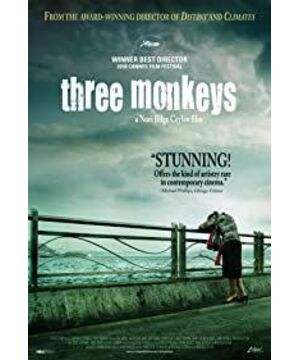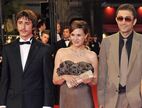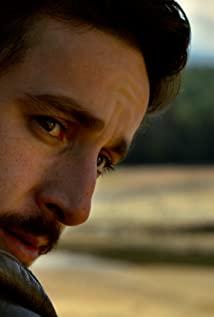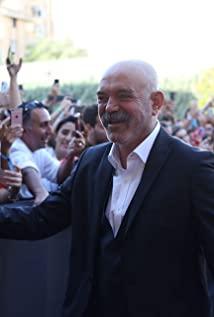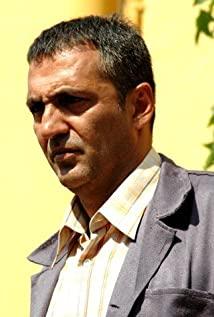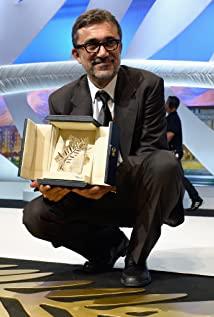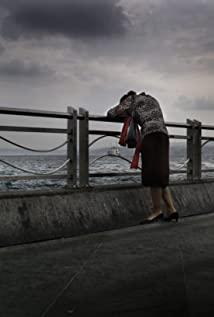"Three Monkeys" begins with a car accident, a body lying on a dark road in a rainy night. When a man and a woman wrote down the license plate number and drove away, a man appeared in front of the body. This man is Savit, he just hit someone, because he saw a car coming, he hid himself beside the car parked in front, fortunately, the two people didn't get off because they were worried about being unsafe, otherwise they would see him the perpetrator. Savitt pulled out his phone and contacted his driver. He asked the driver to take the blame for him, because he was going to run for election, because he had the money to ensure the life of the driver's family, and because he had a way to keep the sentence to a minimum.
The driver's name was Yubo, and he had a wife and a son in his twenties. Son Ismail does not have a job, and often hangs around outside, occasionally getting drunk and fighting. After Yubo was imprisoned, in order to cheer up his son, his wife Heather agreed to his son's request to go to Savit to discuss whether he could advance some money. After all, Savit promised to pay Yubo to go to jail for the crime. Heather came to Savitt's office alone, sat down and said her intentions, Savitt stared straight into Heather's eyes.
Heather had a sullen face when he got home. Ismail nervously asked what was going on, but Heather didn't say a word until she laughed and said he agreed.
One day, when Ismail came back from the outside, he found some movement in the house before entering the door. He lowered his body and peered in through the keyhole. Soon a man came out of the house and walked straight to the car parked on the side of the road. When the man turned around, Ismail saw what he looked like. It was Savit.
When Ismail returned home, he questioned his mother, saying he saw it all. Heather defended himself, saying that Savitt was just here to see how their lives were going and that nothing had happened. That night, as Ismail sat on the sofa in the living room, he saw a drenched boy in front of him.
Ismail visited his father two or three times while Yubo was in prison, but he never mentioned anything to him. Nine months later, Ismail went to pick up his father from prison. When Yubo saw Ismail driving a pickup, he asked who was going to ask for the money? Ismail said it was his mother who asked for it, but she left at her own request. When Yubo asked why he hadn't been told about buying a car beforehand? Ismail said it was to surprise him.
Yubo and Ismail went to the cemetery, and the two stood side by side at a grave. That should be the grave of Ismail's younger brother. In the family photo at home, there are two boys standing in front of the parents.
Savitt came out of the house with his family, and just as he opened the door to get into the car, he saw Heather standing behind the bushes, and he hurriedly got into the car.
When Yubo got home, Heather pretended to be nonchalant, but she kept her back to Yubo and pretended to be busy in the kitchen. It can be seen that the relationship between the husband and wife is not good. When Heather was in the bathroom, her cell phone in her backpack kept ringing. When Yubo walked into the kitchen, he heard cheerful love songs coming from his phone. He took the phone out of Heather's backpack and picked it up when it rang a second time. There were angry words from the other end, asking: Are you crazy? Why are you running to my house? It was a man's voice, the voice of a man Yupo knew. As soon as the other party heard Yubo's voice, he immediately hung up the phone.
Yubo tried to question his wife, who he threw onto the bed. However, although both of them were very emotional, there were some things they couldn't say.
Yubo arrives at Savitt's office. When Savitt took out a pack of money from the drawer and handed it over, Yubo asked if he had deducted the money advanced from the family? Savitt said it was just a little bit of money, and after Yubo had paid so much for him, there was no point in it. Yubo looked at Savit without saying a word.
Savit and Heather came to the beach at the same time. Savitt was very excited and blamed Heather for not calling him, let alone showing up at his door. After all, the two agreed that when Yubo was released, everything should end. Heather was also very excited. She kept saying that she loved Savit and didn't want to end like this. She held onto him and kept praying. But doing so only made Savitt more angry, and he yelled viciously as he pushed Heather away. What the two of them didn't know was that there was someone hiding in a corner to see all this.
At night, Yubo sleeps alone curled up on the living room sofa. Ismail quietly walked past him into the room. Ismail just returned home.
After dawn, there was a knock on the door. Immediately, Yubo and Heather both appeared at the police station. The police first asked Yubo if he had contacted Savit yesterday, before mentioning that Heather and Savit had been in touch by text message.
It's night again. Yubo was lying on the bed alone, leaning on his side, wondering what he was thinking. In between, a small arm stretched out from behind him and embraced him, and then the owner of the small arm got out of bed and walked out.
Heather sat alone at the table when Ismail came over. He lowered his body and said: I did it. Heather didn't quite understand at first, but soon, she understood what her son was saying, and she showed a panicked look.
Yubo walked to the rooftop, and just as he was about to step on it, he saw his wife sitting on the fence of the rooftop, with her feet straddled outside, her body slowly leaning forward, and there was the sound of a rumbling train from under the rooftop. When Yubo saw this scene, he immediately retracted his body, and in the darkness, he leaned his back against the wall tightly, beads of sweat appeared on his head, and his face was both painful and scared.
Then Yubo saw his wife and son sitting face to face at the table on the rooftop. When Yubo knew what his son had done, he rushed out the door, and when he was about to go downstairs, Heather chased after him and asked him where he was going. Yubo turned back and yelled at her, saying she would either deal with it or shut up.
Yubo stood at the door of the police station, staring at the lights inside the door.
There is a small restaurant near Yubo's house. A country boy was there to help. The boy's parents are deceased. Being helpless and financially strapped, the shop owner allowed the young man to lay a floor in the shop at night. In his sleep, the lad heard Yubo slamming on the store door and calling his name, so he opened the door and let Yubo in. Yubo sat face to face with the lad, and Yubo said, "You have no family and nowhere to go. There is no hope for this kind of life." But you are still young. When you come out, you can get a sum of money. Although this money is not a lot of money, it is enough for you to open a small shop.
Yubo went to the roof again, and Heather was still sitting on the roof's wall. Heather smiled involuntarily when she looked back at Yubo. But the smile faded immediately, she turned her head to look at her feet again, and leaned forward a little. Yubo finally spoke, he said: Don't be silly, come down.
The evaluation of "Three Monkeys" is polarized. People who like it are fascinated by the use of long shots and sound effects, and are fascinated by the dark and depressive atmosphere of the film. And those who hate it, hate the vague meaning in the film, hate the director's fussy inspection of life. For this film, the most discussion is about what the title refers to. Who doesn't listen, who doesn't watch, who doesn't speak? In fact, the title of "Three Monkeys" was changed later, and it wasn't originally this name, so there is no need to make a one-to-one correspondence between the content and the title, just take the general effect.
Because "Three Monkeys" has very little dialogue, and there are many jumps in the explanation of the characters' plot, and the special title of the film, each audience's interpretation of the film is also different. Some people think that this is alluding to the self-degeneration of Turkish society, and tacitly refuses to say anything about finding someone to blame. Some people think that the son's refusal to talk about the film, the wife's refusal to listen, and the husband's refusal to watch the film have created the disintegration of the family. In this regard, my personal opinion is relatively simple, that the whole film is about the cowardly dodging of father Yubo. When the boss Suster asked him to come forward to take the blame for the car accident, he was silent. When the eldest son was in so much pain and self-denial because of the death of his younger brother, he remained silent. He was silent when his wife Hong Xing came out and his boss betrayed and humiliated him. But the whole film took a turning point when he saw his wife jumping off the building to commit suicide. It turned out that he was still hiding himself, allowing fear and cowardice to annihilate himself. But immediately the director jumped and gave Yubo another ending. He was no longer silent. He joined the conversation between his son and his wife and learned that his son had killed Suster, and then went out to take the blame for his son. At this moment, he finally had the courage to yell at his wife. Although he still failed to enter the police station in the end, he found a better solution (a method that defenders may think is a bad one). After he bravely faced all this, the director asked him to return to the rooftop again to face his wife who was about to jump off the building again. This time, he no longer hides himself in the dark, but stepped out to the rooftop. He untied all the knots in his heart, was able to face his wife, and said softly that it was all right.
View more about Three Monkeys reviews


